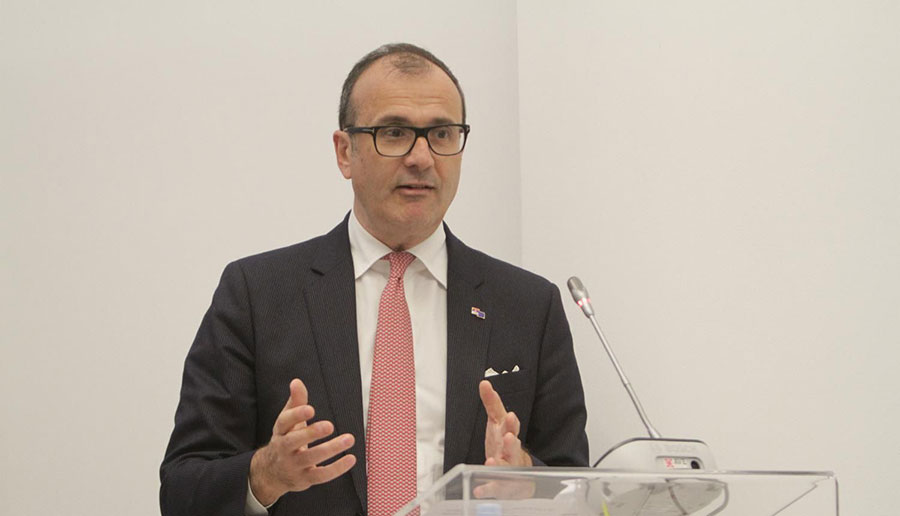Progress in normalization of relations with Pristina and rule of law reform are two crucial factors that determine the pace of Serbia’s advance towards EU membership, said Head of the EU Delegation to Serbia Sem Fabrizi.
Chapter 35, dealing with Belgrade-Pristina dialogue, is without a doubt an important chapter and the dialogue is a crucial element of Serbia’ further progress on the EU path. The dialogue should lead to a binding agreement on comprehensive normalisation of relations, said Fabrizi in an interview with the Kord magazine.
Fabrizi points out that it is not the EU that adopts the final decision, including the one on the recognition of Kosovo. The final decision rests on EU Member States, he said.
The scope and content of normalisation will be defined by leaders in Belgrade and Pristina. The EU, under the leadership of EU High representative Federica Mogherini, will continue to encourage the process, Fabrizi said.
Speaking about the opening of new negotiating chapters, Fabrizi said that the opening should not be seen as a goal in itself, but should rather “be linked to the progress of reforms implemented with a view to meeting EU standards.”
In order to yield positive results, reforms should be implemented appropriately. They should be at the top of political agenda all year round, not only ahead of Intergovernmental Conferences, Fabrizi says.
There is no “speed limit” when it comes to the number of chapters that can open at each Conference. However, he explains, European integration is more about the quality and depth of reforms than the speed of implementation.
Fabrizi announced that the EU Delegation was drawing up an annual report on Serbia’s progress in 2017. It will be published in April 2018, so it’s too early to anticipate its findings, Fabrizi says.
One thing’s for sure, there has not been much progress on a number of recommendations, including those regarding the efficiency and independence of independent regulatory bodies, Fabrizi notes.
The number of physical attacks on and intimidation of journalists reported by professional associations is growing, he said. Despite the fact that the reports compiled by international organisations notice the same trend, judicial authorities apparently show no interest in cracking those cases, Fabrizi concludes.




